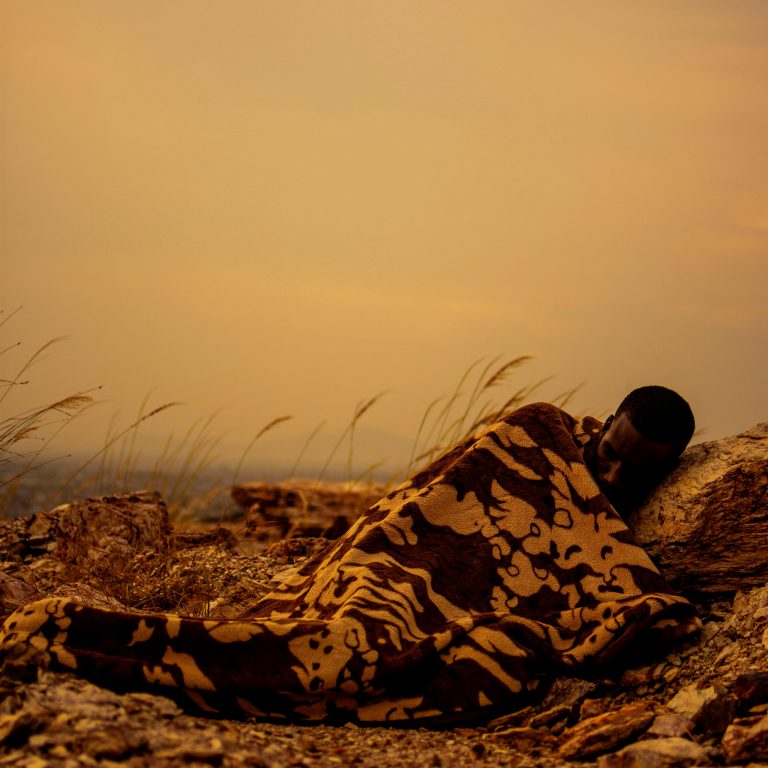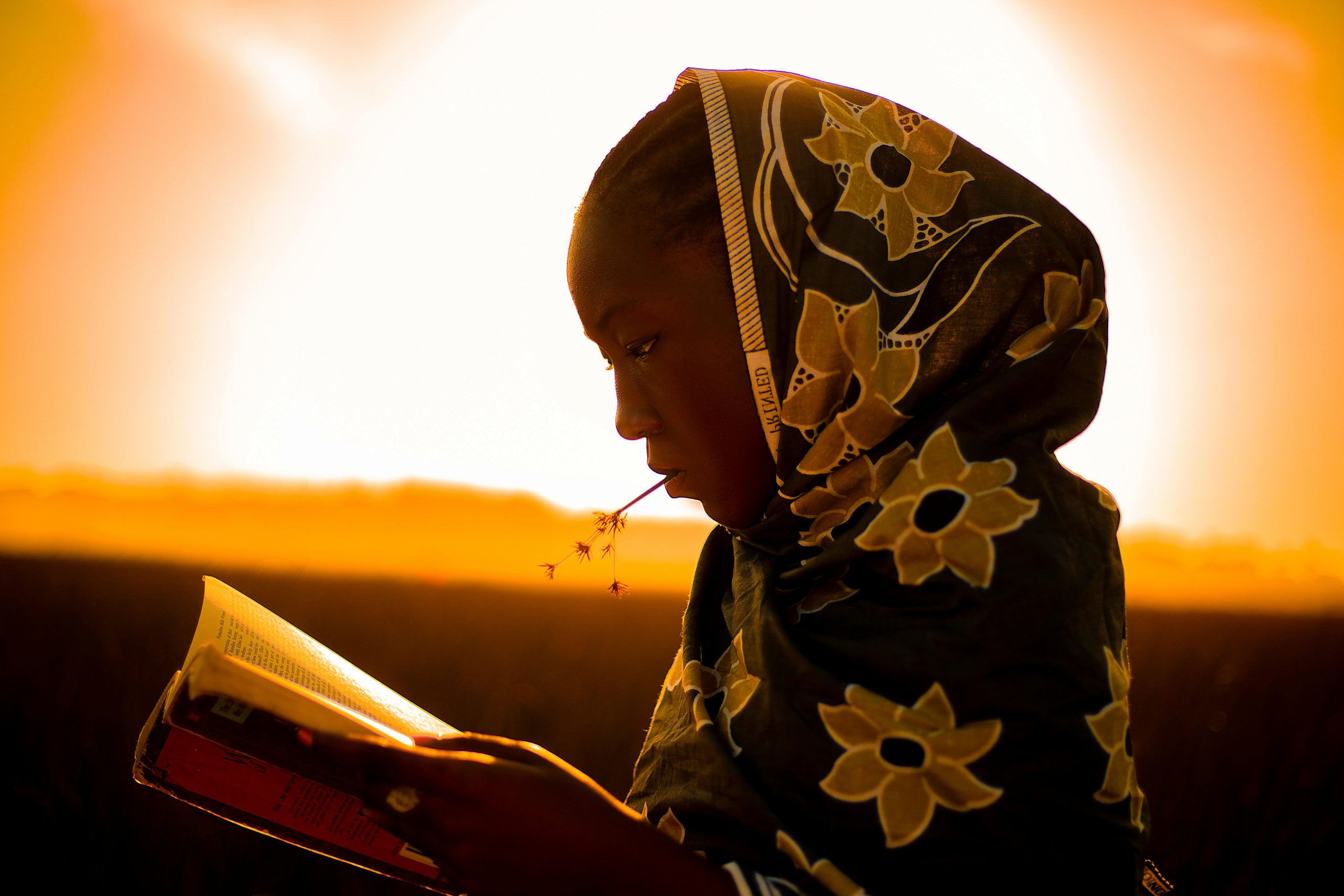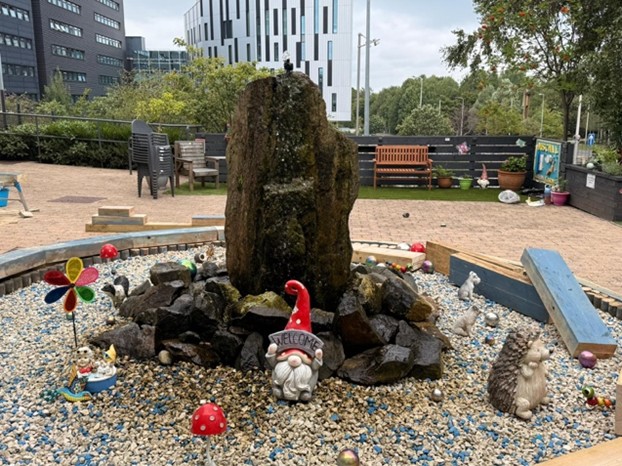A guest post from anna osarose, a PhD student at the University of Surrey.
When I first encountered Maureen Blackwood’s short film Home Away from Home (1993), I didn’t use the language of ‘radical love’ or ‘rest as resistance’, but what I did feel was a need to slow down and sit with the pain of racial trauma depicted on screen and in me. There was a call to sit with history, resistance and truth. Reading Emma Davidson’s reflection on The Art of Slow Research: Why Taking Our Time Matters (May 2025), I found myself reflecting on my practice-based research project which explores radical love, rest and forms of resistance to racial trauma, particularly through the films of Ngozi Onwurah and Maureen Blackwood.
Onwurah and Blackwood do not rush to explain pain, however they do portray notions of rest that disrupt the idea of the ‘black superwoman’ and restore humanity to their protagonists. Thus the call to slow research for me is multi-faceted: I am looking for rest and resistance in the archives while trying to embody this way of being that is central to survival. To slow down is an act of refusal to burn out, be the ‘black superwoman’ or bow to the god of more, more, more.
Onwurah’s Flight of the Swan (1992) and Blackwood’s Home Away from Home (1993) are both foundational films in my research, and although short (both under 15 minutes) explore racialised and gendered bodies as a site of pain, power, compassion and revolution. There are moments in Onwurah and Blackwood’s films when the camera lingers, sits in silence (Home Away from Home is a dialogue-free film) or there is a camera angle that is comforting. The gaze in these films feel authentic, safe, radical and ‘for us’, making Onwurah and Blackwood’s choices both artistic and political. Thus we see an alignment with bell hooks’ scholarship on the oppositional gaze (hooks, 2015), which frames looking as an act of resistance; a reclaiming of the right to see and to be seen beyond the dominant, objectifying, white patriarchal gaze. hooks’ explains that “critical black female spectatorship emerges as a site of resistance only when individual black women actively resist the imposition of dominant ways of knowing and looking.” Onwurah and Blackwood do not simply portray black women; they invite a gaze that affirms rather than consumes. Their work embodies hooks’ assertion that for black women, the act of looking, creating or inhabiting a gaze is inherently political. Whenever we choose to question a system of power, whether as a filmmaker, creative or researcher – we are engaging in politics, and even more so if we are racialised as black or brown.

In my research, I look at rest and resistance through the framework of radical love. bell hooks dedicated a lifetime of work to love and rest, specifically addressing the needs of black women. hooks’ examines love on a social and political level, intertwining how rest is a key component of loving oneself. In hooks’ now much celebrated and seminal text in the mainstream All About Love: New Visions, first published in 2001, hooks calls for a more radical type of love; a love that does not primarily exist within the realm of romance but a love that calls for fundamental change in one’s heart; a love that requires deeper work (that is difficult) and a lifetime commitment. hooks powerfully speaks against the obsessive individualism of our times, and extreme promotion of self even though writing in 2001, when we were not at the height of “social media-self-obsession” in the way that we are today. She highlights the importance of self-love being “the foundation of our loving practice. Without it our other efforts to love fail” (hooks, 2018). There is a strong emphasis on love within community, explaining that “there is no better place to learn the art of loving [and rest] than in community” (hooks, 2018). So what am I proposing here? I am calling us to slow down and resist the pressure to become less human. I am calling us to slow down together, in community. This slowing down together can be in a virtual space, in-person, or in the unseen liminal space where we dream together for true liberation.
The slowing down I speak of is one that is rooted in black feminist thought, scholarship and history. It is a slowing down that gives us space to imagine, dream and be experimental in the research process. It is a slowing down that recognises and remembers the pain of others. It honours.
Tricia Hersey provides a framework for rest. She describes rest as “an embodied practice and lifelong unravelling” something that is “ancient and slow” (Hersey 2022). For Hersey rest is bound up in love as practice, and Blackness because “there is no Rest is Resistance movement without Blackness” (Hersey, 2022). She calls for a full deprogramming of the system, nation states and hyper productivity in order to work toward a “shared goal of becoming more human”. Similar to hooks, Hersey provides practical ways to embody rest and push back against capitalism and exhaustion, frequently reminding the reader that this is a healing work, justice work and life-long commitment.
Reading The Art of Slow Research: Why Taking Our Time Matters, I was reminded that slowness is not necessarily about doing less (sometimes it is!) but at the core, it calls us to do things in a different way – not the way that we have been taught by the institution. For those of us working within institutions that have historically devalued our knowledge, slowness can be a form of pushing back and saying ‘no’.
There is still so much that I am learning. For now, I hope to engage with my research from a place of radical love and rest as resistance; allowing myself to “surrender to the unknown” (Hersey, 2022). My aim is to allow creativity to flow from rest and freedom, “without the limits of capitalism” (Hersey, 2022). This will be a challenge, but one I am willing to embrace. I hope you will too.
anna osarose is an educator, writer and creative. She has an MA in English Education (IOE, UCL), MA in Black British History (Goldsmiths) and is currently undertaking a PhD at the University of Surrey. anna is the founder & facilitator of the Black Feminist Frame.
Cover image: Clement Eastwood
References
Blackwood, M. (Director) 1993. Home Away from Home [Short film]. UK: British Film Institute.
Davidson, E. (2025) The Art of Slow Research: Why Taking Our Time Matters.
Hersey, T. (2022) Rest Is Resistance: Free Yourself from Grind Culture and Reclaim Your Life. London: Aster / Octopus Publishing Group.
hooks, b. (2018) All About Love: New Visions. New York: William Morrow Paperbacks.
hooks, b. (2015) Black Looks: Race and Representation. New York: Routledge.
Onwurah, N. (Director) 1992. Flight of the Swan [Short film]. UK: British Film Institute.





